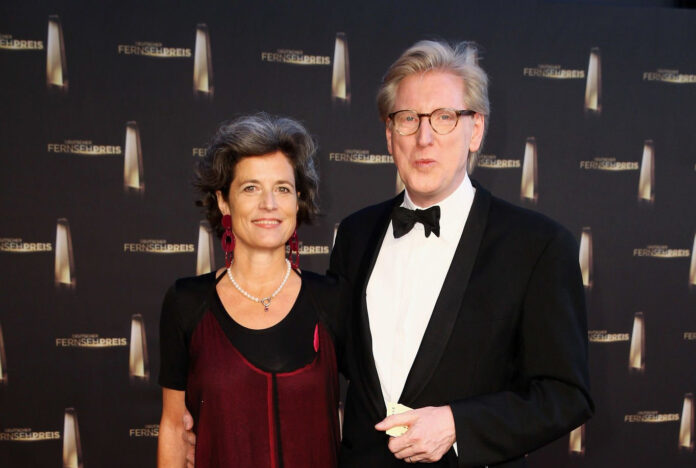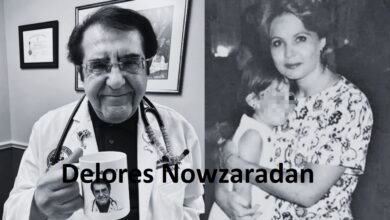Franziska Castell: A Modern Face of Heritage and Grace

Franziska Castell is one of those names that carries a quiet but meaningful weight. She’s not a celebrity in the traditional sense, but her background, presence, and connection to one of Europe’s historically noble families make her a person of intrigue. Her story is less about fame and more about legacy — how someone born into a name with centuries of heritage finds her own place in a rapidly changing world.
In today’s society, where fame often comes from visibility, Franziska’s appeal lies in her balance between privacy and presence. She represents a bridge between the past and the present — a blend of aristocratic grace and modern individuality. Understanding her story is like tracing the evolution of tradition itself: how history shapes identity and how modern life reshapes that history in return.
The Noble Roots of the Castell Family
The name “Castell” carries centuries of European nobility, especially within Germany. The family has long been associated with influence, land, and leadership, with roots stretching deep into the region of Franconia. Members of the Castell family held positions of authority and were respected as part of the traditional aristocracy that defined Central Europe’s social order for generations.
When you hear “Castell,” it’s not just a surname — it’s a story. A story of castles, lineage, tradition, and the sense of duty that comes with belonging to a family whose name is etched into history. Franziska Castell inherits not only this name but also the expectations, responsibilities, and privileges that come with it. Her background serves as both an anchor and a foundation for how she moves through life today.
This heritage doesn’t mean she lives in the past; rather, it gives her a perspective grounded in culture and continuity. It’s about carrying forward something larger than oneself — something that connects generations through time.
A Childhood Framed by Culture and Education

Growing up in such a distinguished family usually means being surrounded by education, travel, and tradition. Franziska Castell’s upbringing likely involved exposure to fine art, history, and languages from a young age. Children from noble lineages often receive an education that blends academic excellence with cultural refinement.
It’s easy to imagine her early life shaped by values of respect, responsibility, and intellectual curiosity. The Castell family’s emphasis on both heritage and modernity would have encouraged her to think broadly about the world — to value her background while being open to global perspectives.
In modern aristocratic families, there’s also a growing emphasis on independence. Franziska Castell likely learned early on that her identity wasn’t just about her family’s history but also about what she could personally contribute to the world. That balance between tradition and personal ambition defines many people in her generation who come from historic families.
A Quiet Public Presence
Franziska Castell doesn’t court attention the way many public figures do, but she does make occasional appearances at high-profile cultural events. These are often elegant occasions where tradition meets modern creativity — film premieres, art exhibitions, or charity galas.
Her appearances reflect a sense of grace and confidence, a kind of quiet sophistication that comes from understanding her place in both old-world society and today’s cosmopolitan circles. She represents a generation of nobles who no longer rule lands or carry political power, but who influence culture, philanthropy, and conversation in subtler, more meaningful ways.
This understated public presence also highlights a defining characteristic of Franziska’s personality: composure. In a world dominated by oversharing and instant fame, her ability to remain poised and private adds to her appeal. She embodies the rare combination of visibility and mystery — the ability to be known without being exposed.
The Blend of Heritage and Modern Life
What makes Franziska Castell particularly fascinating is how she blends her aristocratic background with a modern lifestyle. Many people born into noble families face the challenge of staying relevant in a time when titles matter less than talent. But she seems to navigate this world with natural balance.
Instead of relying on her heritage alone, she appears to embrace the modern world’s values — individuality, professionalism, and purpose. The result is a mix of tradition and progress, where old values like dignity and discretion meet modern priorities like creativity and self-expression.
Her life serves as a reminder that legacy doesn’t have to mean limitation. Being part of a historical lineage doesn’t prevent someone from shaping their own identity. In fact, it can inspire a person to redefine what legacy means turning it from a symbol of the past into a tool for the future.
Philanthropy and Cultural Engagement
While not every detail of Franziska Castell’s personal or professional involvement is public, people with her kind of background often play important roles in philanthropy and cultural initiatives. Supporting the arts, education, or environmental causes tends to be a natural extension of their upbringing.
Families with deep-rooted traditions often see philanthropy as a duty rather than an option. It’s a way to give back to society while continuing to represent values like compassion, education, and preservation of culture. Franziska Castell, through her background and presence, embodies that spirit of responsibility and contribution.
Engaging in such activities doesn’t just enhance social status; it builds legacy in a living, modern sense — one measured by impact rather than inheritance. This is how people like her bridge the gap between historical privilege and contemporary purpose.
The Challenges of Heritage
It’s easy to romanticize noble families, but the truth is that heritage can be both a blessing and a burden. People like Franziska Castell often carry the weight of expectations from maintaining family values to representing centuries of history with grace.
Living under such a name can limit how freely one can express individuality. Every action, public appearance, or even social post may be viewed through the lens of family reputation. Balancing that pressure with personal freedom is one of the defining challenges of modern aristocratic life.
Yet, Franziska seems to manage this balance with elegance. By maintaining privacy and avoiding unnecessary controversy, she preserves both her individuality and her family’s dignity. It’s a modern take on an old lesson: you can be part of history without being trapped by it.
Lessons from Her Story
Franziska Castell’s journey offers insights that go beyond nobility or fame. It’s a story about balance between old and new, duty and choice, identity and legacy.
For anyone, especially young people navigating their own paths, her example shows that where you come from is only part of your story. What truly defines you is how you carry that background into the future. Franziska Castell reminds us that grace isn’t outdated, and that dignity still holds power even in the digital age.
She also represents the quiet strength of purpose. You don’t need to be loud to be relevant; you just need to be consistent, authentic, and mindful of your values.
Conclusion
Franziska Castell stands as a symbol of timeless sophistication in a world that often rushes past its roots. Her story combines elegance, heritage, and individuality all shaped by a noble past and a thoughtful present.
While much of her life remains private, what’s visible tells us a lot about who she is: someone grounded, graceful, and aware of the weight her name carries. In every appearance, every gesture, and every mention, she reflects a delicate balance between history and humanity.
Ultimately, Franziska Castell reminds us that legacy isn’t about what you inherit it’s about what you choose to continue. Her life, though understated, speaks volumes about integrity, culture, and the art of carrying history with grace into the modern world.



